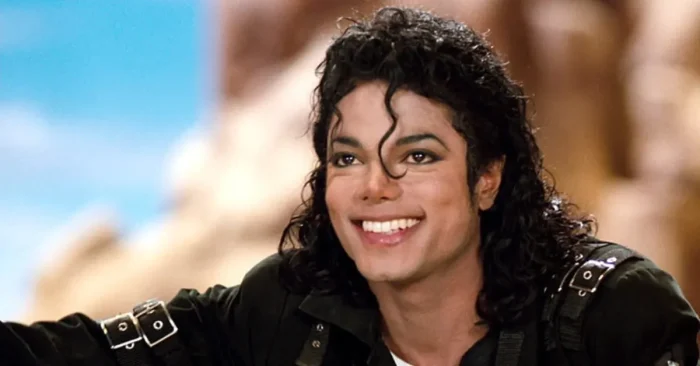Michael Jackson – Biography
Gary Childhood and Jackson 5 Beginnings
Born August 29, 1958 in Gary, Indiana, Michael Joseph Jackson was the seventh of nine children in a working-class family. His father Joe’s relentless rehearsals turned the Jackson 5 into a polished act by 1964, with 6-year-old Michael emerging as the standout vocalist. The group’s 1969 Motown signing launched hits like “I Want You Back,” showcasing Michael’s preternatural stage presence and vocal maturity. Behind the scenes, this period was marked by grueling schedules, abusive rehearsals, and the loss of a normal childhood – factors that would later shape his complex psyche. By age 11, he was already a veteran performer, recording solo material while still fronting the group.
Off the Wall and Solo Superstardom
Jackson’s 1979 album “Off the Wall” (produced by Quincy Jones) marked his transition into adulthood with disco-funk tracks like “Don’t Stop ‘Til You Get Enough.” The album’s four Top 10 singles made him the first solo artist to achieve this, yet he felt snubbed by only winning one Grammy. This perceived slight fueled his legendary perfectionism – he’d later call this period “just warming up.” His work ethic became terrifying; recording sessions often lasted until 4 AM, with Jackson demanding dozens of vocal takes until achieving what he called “the angel sound.” The 1982 collaboration with Paul McCartney on “The Girl Is Mine” previewed what would become the best-selling album in history.
Thriller and Global Domination
The 1982 “Thriller” album revolutionized music, video, and celebrity culture. Jackson worked obsessively for nine months, famously suffering second-degree burns during the “Billie Jean” video’s pyrotechnics. The 14-minute “Thriller” short film (directed by John Landis) became a cultural phenomenon, while the album spent 37 weeks at #1 and earned 8 Grammys. His 1983 Motown 25 performance – featuring the first moonwalk on national TV – cemented his status as the world’s greatest entertainer. Behind the scenes, Jackson’s life grew increasingly isolated, with the construction of Neverland Ranch reflecting his desire to recreate the childhood he’d lost.
Business Empire and Controversies
Jackson’s 1985 purchase of ATV Music Publishing (including Beatles catalog) for $47.5M demonstrated his business acumen, though it strained his friendship with McCartney. The late 80s saw escalating eccentricities – hyperbaric chamber rumors, chimp companions, and drastic physical changes. 1993 brought both groundbreaking Super Bowl halftime show performances and damaging child abuse allegations, settled out of court for $23M. His 1995 “HIStory” album addressed media persecution through tracks like “Tabloid Junkie,” while the accompanying tour broke attendance records despite ongoing controversy.
Later Years and Tragic End
The 2000s saw Jackson battling financial troubles, prescription drug dependency, and further allegations – though acquitted at his 2005 trial. His planned “This Is It” comeback concerts in 2009 promised artistic redemption, with rigorous rehearsals showcasing glimpses of his undimmed talent. On June 25, 2009, Jackson died from acute propofol intoxication administered by his personal physician. His memorial service attracted 2.5 billion viewers globally, while posthumous releases like the “Michael” album and Cirque du Soleil shows extended his legacy. The 2019 “Leaving Neverland” documentary reignited abuse controversies, complicating his cultural standing.
Artistic Legacy and Influence
Jackson’s impact transcends music: his short films pioneered modern music videos, his dance techniques (moonwalk, anti-gravity lean) became global phenomena, and his humanitarian efforts set celebrity philanthropy standards. Artists from Beyoncé to The Weeknd cite his influence, while his record sales exceed 400 million worldwide. The paradox of his life – groundbreaking artistry versus personal turmoil – remains a cultural Rorschach test. From child prodigy to King of Pop to tragic figure, Jackson’s story reflects both the pinnacle of creative achievement and the perils of fame.
Conclusion
Michael Jackson’s life represents the ultimate show business saga – unparalleled success intertwined with profound personal struggles. His musical genius broke racial barriers and redefined global pop culture, while his eccentricities and legal battles revealed the cost of lifelong stardom. Whether viewed as musical messiah or flawed icon, his cultural footprint remains inescapable, his artistry timeless, and his complex legacy still fiercely debated over a decade after his death.
Frequently Asked Questions
How many albums did Michael Jackson sell?
Estimated 400 million worldwide, with “Thriller” remaining the best-selling album ever at 70+ million copies.
Why did his skin color change?
Jackson had vitiligo, a pigmentation disorder, along with lupus – conditions he discussed openly after years of media speculation.
Did he really sleep in an oxygen chamber?
No – that was a tabloid fabrication after he purchased a hyperbaric chamber for burn treatment research.
How many Grammys did he win?
13 competitive Grammys plus the Legend Award, though famously “Thriller” only won 8 of its 12 nominations.
What was his vocal range?
Approximately 3.5 octaves (F2-E6), with his signature breathy tenor and explosive falsetto becoming instantly recognizable.






